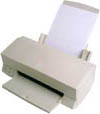The Verb Phrase
Recognize a verb phrase when you find one.
Every sentence must have a verb. To depict doable activities, writers use action verbs. To describe conditions, writers choose linking verbs.
Sometimes an action or condition occurs just once—pow!—and it's over.
Read these two short sentences:
Offering her license and registration, Selena sobbed in the driver's seat.
Officer Carson was unmoved.
Other times, the activity or condition continues over a long stretch of time, happens predictably, or occurs in relationship to other events. In these instances, a single-word verb like sobbed or was cannot accurately describe what happened, so writers use multipart verb phrases to communicate what they mean. As many as four words can comprise a verb phrase.
A main or base verb indicates the type of action or condition, and auxiliary—or helping—verbs convey the other nuances that writers want to express.
Read these three examples:
The tires screeched as Selena mashed the accelerator.
Selena is always disobeying the speed limit.
Selena should have been driving with more care, for then she would not have gotten her third ticket this year.
In the first sentence, screeched and mashed, single-word verbs, describe the quick actions of both the tires and Selena.
Since Selena is inclined to speed, is disobeying (a two-word verb) communicates the frequency of her law breaking. The auxiliary verbs that comprise should have been driving (a four-word verb) and would have gotten (a three-word verb) express not only time relationships but also evaluation of Selena's actions.
Realize that an adverb is not part of the verb phrase.
Since a verb phrase might include up to four words, a short adverb—such as also, never, or not—might sneak in between the parts. When you find an adverb snuggled in a verb phrase, it is still an adverb, not part of the verb.
Read these examples:
For her birthday, Selena would also like a radar detector.
Would like = verb; also = adverb.
To avoid another speeding ticket, Selena will never again take her eyes off the road to fiddle with the radio.
Will take = verb; never, again = adverbs.
Despite the stern warning from Officer Carson, Selena has not lightened her foot on the accelerator.
Has lightened = verb; not = adverb.
©1997 - 2025 by Robin
L. Simmons
All Rights Reserved.
